Hard water is a pretty common term thrown around, especially if you’re into home care or dealing with certain hair woes. But what exactly is it? Well, the word ‘hard’ stems from the presence of minerals—mainly calcium and magnesium—that decide to hang around in your tap water. Imagine tiny minerals having a party in your pipes! Not every region has the same level of hard water though, as it’s largely about what your local water supply picks up on its journey to your tap.
Now, how’s hard water different from its more elusive cousin, soft water? The latter has fewer of those pesky minerals, making it gentler not just on your skin but also on your hair. It allows soaps and detergents to lather up nicely, which isn’t the case with hard water. That mineral presence? It tends to mingle with soap and form scum rather than foam.
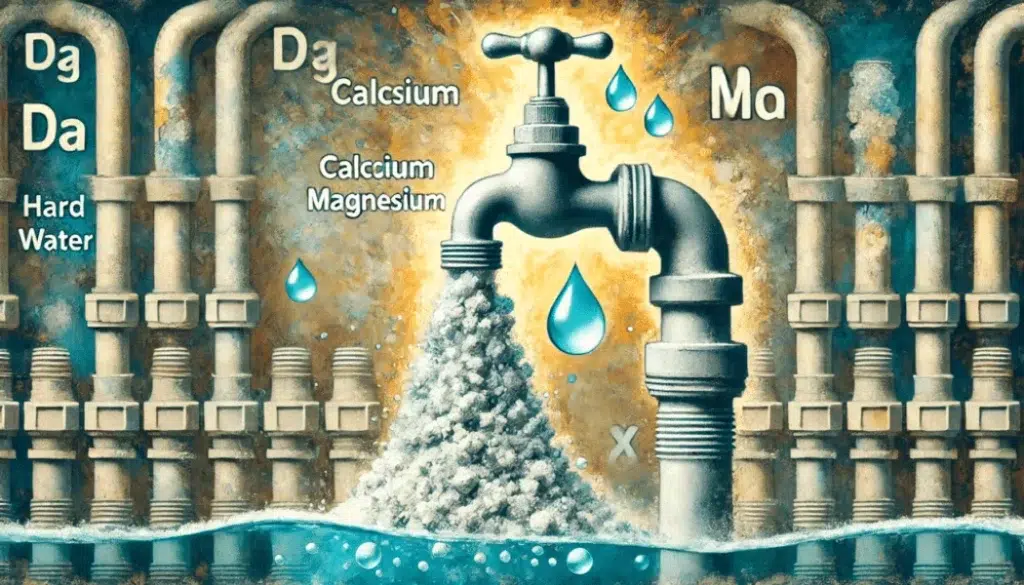
You might wonder how hard water even gets formed in the first place. Typically, rainwater starts off soft, but as it trickles through soil and rocks, it collects minerals like calcium carbonate and magnesium. If these minerals end up in high amounts in your water, voila—hard water.
Regionally speaking, some areas are more prone to hard water issues than others. So, it’s a good idea to get familiar with your local water conditions. You can usually find this info through your city’s water quality report. So, next time you’re battling with stubborn hair or weird skin issues, maybe take a cue from what’s gushing out of your faucet.
Understanding what hard water is and knowing your local water situation can really be the first step towards nailing down an effective scalp care routine.
🚨 Signs and Symptoms: Recognizing Hard Water’s Impact
You might be dealing with hard water if your taps and showerheads seem to be greying with some white, crusty deposits. That’s limescale, making its presence known all over your metal fixtures. Excessive soap usage but no lather? Another classic sign of hard water. It’s like soap and minerals just refuse to get along!
Your hair and scalp though—those can be the real victims in this scenario. Ever feel like your hair’s more like straw than silk? That dry, brittle feeling could be telling you something about your water. When minerals pile up on your scalp, they cut down the moisture your hair craves, leaving it begging for more hydration.
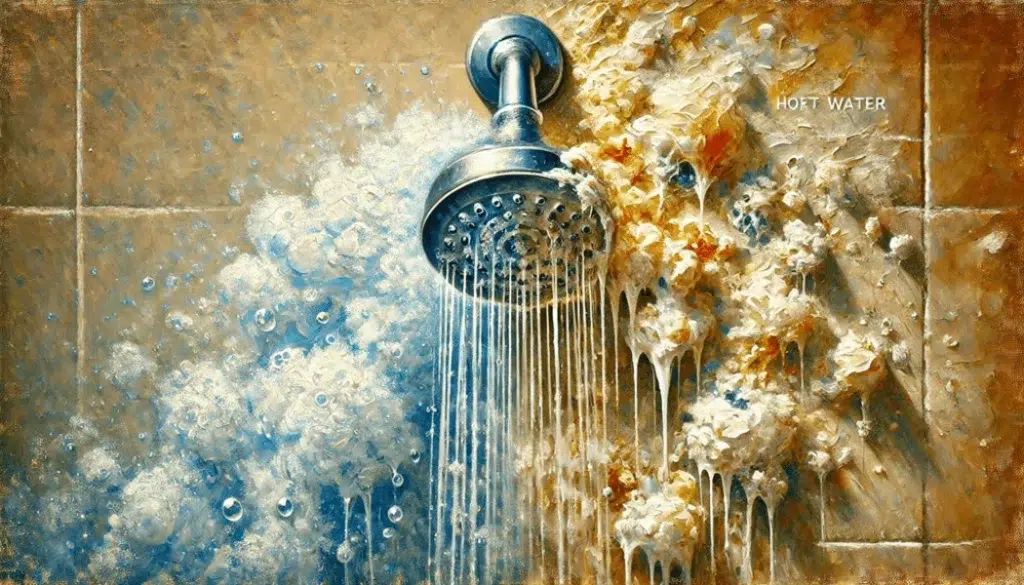
Don’t even get me started on dandruff and scalp irritation. Itching and flakiness can be worsened by that stubborn mineral layer sitting on your scalp. It’s like having a clingy ex who refuses to leave your hair alone! Colored hair? Expect even more fading and dullness more than usual. Hard water’s got a knack for stripping those vibrant shades away quicker than you’d like.
Identifying these signs can help you determine whether it’s the hard water doing a number on your hair. And that could be your ticket to finding a solution that fits.
🧪 Decoding the Damage: Effects on Hair, Scalp, and Follicles
Let’s crack open why hard water messes with your hair so much. When those mineral deposits build up, they turn into a stubborn layer on each strand and skin. This layer doesn’t just sit pretty—it blocks moisture and nutrients from getting where they need to go. Result? Your hair feels like you’ve been roaming a desert with no oasis in sight.
Dryness aside, you’ve got brittleness to contend with. Hair strands become weaker and more prone to snapping, much like those cursed dry spaghetti pieces that just refuse to remain whole. Scalp health doesn’t catch a break either. Irritation? Check. Increased dandruff scoring a home run? Double check.
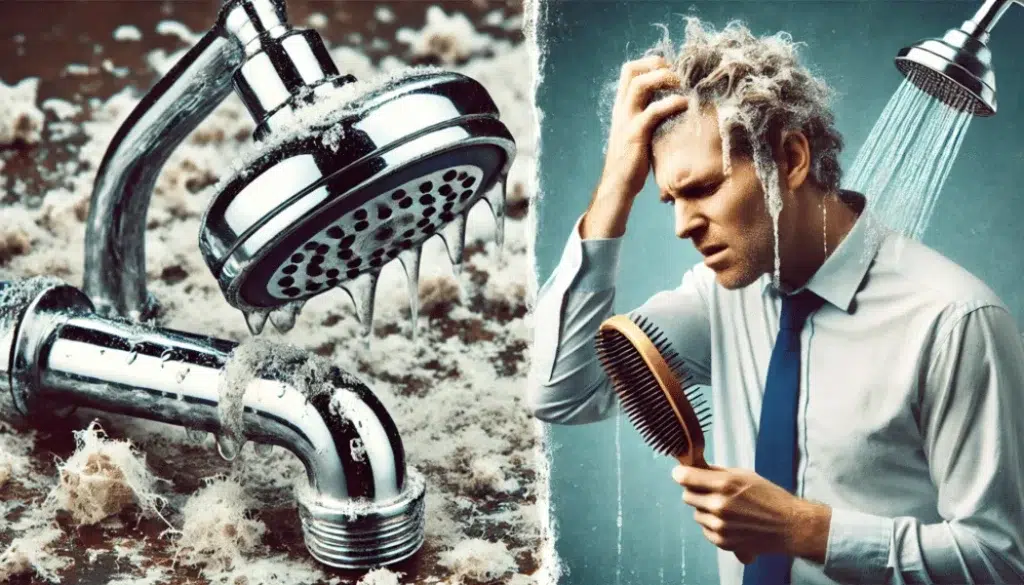
There’s a more sinister side, too. The minerals can actually block your hair follicles, potentially leading to hair loss or at least making it harder for new, healthier hair to push through. You might not immediately connect losing some hair’s bounce or experiencing a thinning patch here and there with hard water, but those minerals have a sneaky way of creeping into the equation.
Figuring out these effects equips you to shield your hair better, steering clear of hair-care pitfalls many fall into simply because they didn’t know what was causing the issues in the first place.
🛡️ Solutions and Shields: Mitigating Hard Water Effects
Protecting your hair from hard water doesn’t have to be a full-blown ordeal. One nifty gadget you might consider is a shower filter. These little helpers work by filtering out minerals before they even hit your locks. It’s a bit like having a bodyguard for your hair. Look for filters designed specifically for hard water and watch your woes fade a bit.
If you’re thinking more of a product route, chelation shampoos could be your new best friend. They’re formulated to strip away those mineral deposits, letting your hair breathe easier. Although typically used once in a while, they can make a noticeable difference for hair that’s been feeling weighed down.
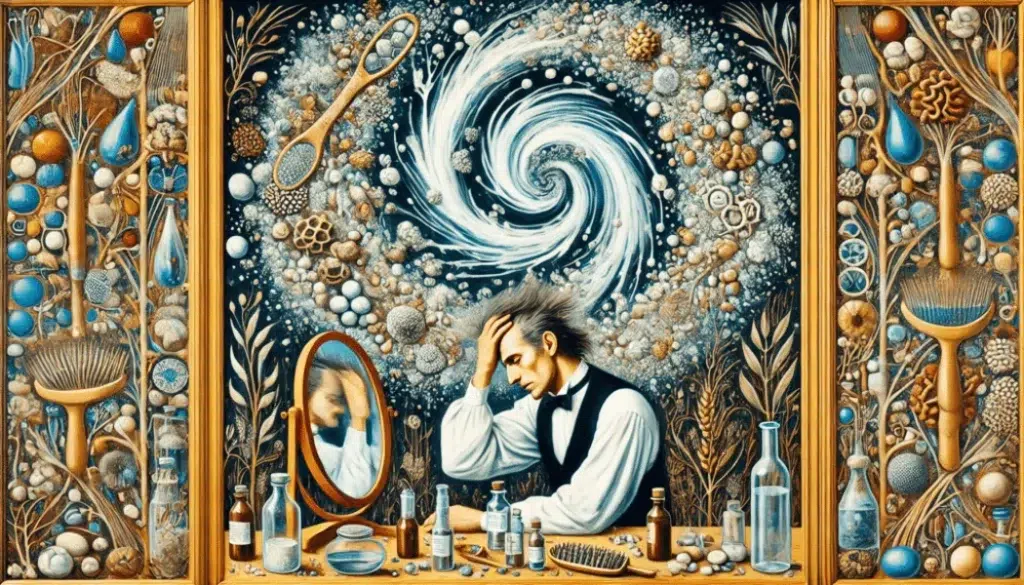
Then there are the DIY solutions—your kitchen might already hold some great remedies. Rinsing your hair with vinegar or lemon juice can help dissolve mineral build-up, giving your hair a fresher turn. Just remember: moderation is key here to avoid altering your hair’s natural pH balance.
Deep washing and extra hydration treatments become crucial when you’re up against hard water. Oils, leave-in conditioners, and regular moisturizing treatments work wonders to lock in that much-needed moisture.
Addressing hard water effects isn’t just about what you put onto your hair. It’s about forming a protective routine, using both tools and products that shield your hair from mineral overload.
🔄 Adapting for the Long Term: Prevention and Testing
Getting a handle on your water situation starts at home. Quick tests like strips or the good old soap method are easy tools to check just how hard your water might be. Soap test? Just mix soap with water and see how much it lathers.
But for those of us wanting to stay in the know, your local water report will give the lowdown on hardness levels in the area. These reports tell you if your water’s a mineral hoarder or fairly harmless.
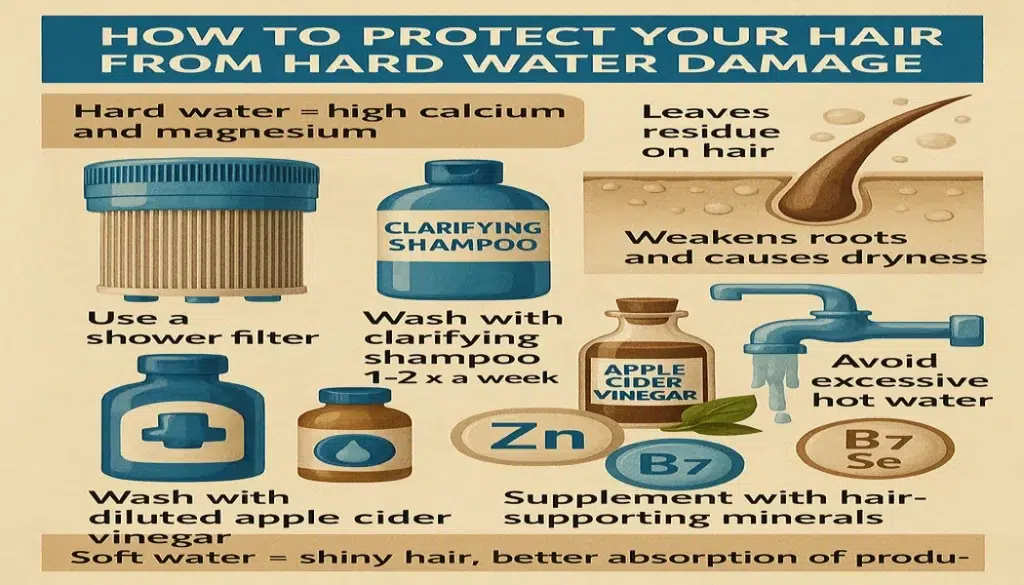
Sometimes installing a water softener is the long-term fix you’re looking for. It swaps out those calcium and magnesium ions for friendlier sodium ones, leaving your hair smiling.
Long-term care is all about finding a balance. With the right tools and knowledge, you can save your hair from the harsh effects of hard water, maintaining healthier locks without breaking a sweat.
If a full-system overhaul isn’t possible, get creative. Water softening systems for just select taps or even smaller, portable options can reduce the hard water blues.
Stay with us — the best is yet to come.
By following our advice, you’re doing the most you can for your hair.
Be the first to know when we publish new guides, tests, and proven strategies for stronger, healthier hair.
👉 Visit the About Me page to learn more about my journey, mission, and why helping people with hair health is so personal to me.
Want healthier, stronger hair? Discover 8 science-backed habits that protect your scalp and boost natural growth. Get your free PDF guide today!
Disclaimer: This article is for informational purposes only and is not a substitute for professional medical advice. Sensitive claims are supported with scientific references, and full product details can always be found on the official websites of the respective manufacturers or distributors.
Some links in this article are affiliate links. If you choose to make a purchase through them, I may earn a small commission at no extra cost to you — helping me keep HairGrowGenius running. Thank you for your support!

✅ FAQ – How Hard Water Affects Your Hair Health
❓ How can I tell if hard water is damaging my hair?
Common signs include dullness, tangling, frizz, excessive dryness, and a filmy or “coated” feeling on the hair even after washing. If your shampoo doesn’t lather well and conditioner seems useless—hard water might be the sneaky culprit.
❓ Does hard water affect colored or chemically treated hair more severely?
Yes. Hard water minerals like calcium and magnesium can strip color molecules from the hair shaft and interfere with chemical treatments like perms or relaxers, making results fade faster and hair more porous and brittle.
❓ Can a shower filter really prevent hard water damage?
A high-quality shower filter can significantly reduce mineral content and chlorine, helping protect both scalp and hair. It won’t completely “soften” water like a full softening system, but it’s a practical and effective step for most households.
❓ Is it safe to use chelating shampoos regularly to combat hard water buildup?
Chelating shampoos are effective at removing mineral buildup, but they can also strip natural oils. It’s best to use them once a week or biweekly, followed by a deep conditioner to restore moisture and balance.
Last updated: June 2025 based on latest research


Leave a Reply